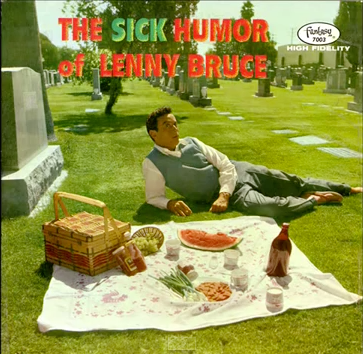I thought our brains experience in the same way at a physical level.
Evidence points to the opposite: male and female brains work differently and we understand the electro-chemical processes. We don’t leap from this to expect that brains will be different in the same ways due to cultural and ethnic differences but again the results of peer-reviewed laboratory science shows that mutations can occur over just one generation and the implication of this is that people with similar cultural experience are likely to show similar differences in the way their brains process input and cognition. More interesting, however, is that while we distinguish similarities in cognition and behavioral phenomena in conditions of schizophrenia, depression, autism and neuroses, we don’t understand these phenomena as physical differences and view it as illness, while we do view gender orientation as a difference in physical brains.
I know there are differences in the way my brain works from others and immediately spot people with the same functional difference no matter what their gender, ethnicity, age or culture. We expect a brown cow to be essentially the same cow as a black or white cow but of a brown color; we know that color doesn’t distinguish cowness. And when we see a human being, only their behavior tells us where they are on the autistic spectrum. We expect them to be the same kind of human being and have the same relationship with their world as a human being with a brain without this function. But unlike the brown cow, they don’t relate to the world in the same way.
We also view variations from that which is typical as imperfections and assume the normal model human being is perfect. Media stereotypes have given this greater meaning during the last century. The effect of this stigmatizes those who show up with a different mental skill set from the normal, for instance, those toward the brighter side of the autistic spectrum. Since approval of peers became the primary source of core value absorption in predominant societies, when we perceive ourselves as different, we feel the need to apply “make-up,” dress differently, get a haircut, lose weight, buy a car, play tennis better and harbor a deprecating self-view, all of this exacerbated by fear of having our differences outed, leading to being ostracized due to differences we are powerless to change. Marketers take advantage of this psychology to advertise products that supply this need. It’s such an immense part of our lives now that we don’t notice how strange it is to be in an Apple store among a population of people salivating over technology for this reason.
After a few experiences of traumatic peer disapproval, a child, whose brain differences show up as on the autistic spectrum becomes sensitized to nuances of alienation and without knowing how and why they are physically different, can only conclude that the difference is unique and personal, that there is something wrong with them. The threat that they may feel this way is enough to trigger defenses that “normal” people may see as instability.
We hadn’t scientifically recognized differences between human beings related to differences in the way our brains work when I was a child. We also thought there’s something wrong with with people who had physical differences; who had hearing deficiencies or couldn’t hear at all or who are blind or blond or black or homosexual. This type of assessment was commonly portrayed in media and extended to views of gender as well as gender orientation, age, ethnicity, language and other cultural differences. The mainstream population still views others in this way, in part, because the way we view things has been inherited, in part because of the language and cultural attitudes implicit in jokes and in part because there are economic advantages to being included in groups that require maintenance of xenophobia, in other words, excluding others on the basis of arbitrary differences. Scientifically, this view of human being is mistaken but media constantly reinforces it with stereotypes.
However, the problem with autism is exacerbated by the fact that autism shows up as a difference in degree and how each individual relates to it is shaped by the way their autism was understood, respected and nurtured during childhood. Some are capable of the focused intensity of Adolph Hitler or Napoleon, the linguistic power of William Blake or Virginia Woolf and/or the visual acuity of Vincent Van Gogh or Jackson Pollock but a common trait of each of these people is a difficulty with intimacy and feeling love.
Something about autistic brains is structurally, electro-chemically different, analogous to differences in the operating systems used by a computer processor. In every other respect we can vary in appearance like anyone else. Short, tall, black, dwarf, male, female, gay, straight, whatever. But theres a similarity in the way our brains work differently from most people, which impacts our lives depending a great deal on our experiences as a child, because human beings are social mammals and the way our brains work with autism, among other things, is associated with emotions.
People with autism are not to be pitied. Empathy naturally drives us to such a concern. Compassion is laudable but to what end is it appropriate to pity a person whose body developed differently, for instance, if they are dwarfed or giants? Or to patronize a person because they are blind, deaf, old or gay? Or to segregate children in schools because of their color, intelligence or ethnicity? On the other hand, the sensitivities of a person on the spectrum requires that they must be treated with conscious carefulness because if they are not, their emotional trigger immediately distances them.
Traditionally, the social purpose of ostracizing and alienating those who are different is to homogenize and force cooperation. These techniques drive away people who are on the spectrum. Cultures are defined by what they don’t tolerate and although it wasn’t done on purpose, a bi-product of promotion of homogenous stereotypes in media is that people with autism are not tolerated. Even if we could give autistic their own state as we did with the Jews who were chased out of Europe, this would have a worse effect on our culture than did the exile of the greatest minds of the century from Europe during the Nazi holocaust because the positive side of people on the spectrum is the creative power of their particular brain anomaly.
An analogy to this is the intolerance expressed in neoconservative biblical literalism. Biblical literalism isn’t about spiritual values, it’s intolerant of diversity of experience to a degree that limits the ability to adapt to a narrow band of thinking. Today, due to the methods we are using to maintain the growth of the human population, we are confronted by global climate change that could evaporate the atmosphere of the planet over a relatively short period and at the very least cause catastrophic waves of destruction, death and possible extinction. We need to think outside the box.
Ways of thinking that are common with autism are not only creative. We possess an ability to sustain the imagination of vastly complex ideas while at the same time, absorbing and accommodating new information in real time, making global changes in huge networks of images, sounds and ideas “on the fly.” Among those in the mainstream “normal” population, many have a facility for driving cars, flying airplanes, surfing, playing video games, but a line is drawn between this ability and the facility for synthesizing and sustaining an intuitive grasp of complex systems outside of language, while still maintaining analytical functions that allows autistic people to intuitively predict the probable future location in time and space of hundreds of objects moving at different velocities and directions.
While we commonly think of autistic focus in terms of Rainman maths, but when this ability is applied in music, you get a Stravinsky, Coltrane, Monk, Messiaen and so on, individuals who feed their hyper-cognitive brains with harmonic relationship data and synthesize complex systems of music and then reduce this to notation on a page. Similarly, the ability can be nurtured in sciences and any of the arts and even spirituality. The area of great difficulty for those who are sufficiently colored in the spectrum of autism, is emotional hypersensitivity. We learn to protect ourselves by avoiding intimacy and group situations in which political gaming is commonly practiced, aspects of life in our culture that are primary themes of motion pictures and television soaps and sitcoms. The downside can be experience of separation.
Although my view of this is prejudiced by the fact that I identify as autistic, please, bear in mind that I do so in the same way as another might identify as gay. I’ve never had to face placard waving gangs of homophobes or laws preventing me from forming a domestic partnership but like many gay people, throughout my life, I’ve hidden my autistic nature to avoid stigmatic references as it is was a crime of which I should feel ashamed. I learned early on as a child to tolerate the derision of schoolmates and my own family and to bear without understanding why they should fell this way, the pity of parents who saw peculiarities as an imperfection of my brilliance instead of what it really was, the source of this brilliance.
Like my neighbor, who identifies as a lesbian, I’m not suffering from a mental illness but I do feel sometimes, the separation.










